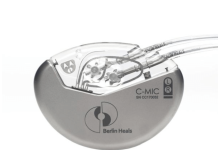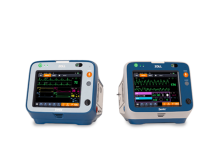DNA Diagnostics Centre (DDC) will supply a home test kit for sperm detection to Contraline’s first-in-human trial evaluating its male contraceptive device.
Contraline’s device – named ADAM – is a hydrogel implant that blocks sperm from travelling through the vas deferens. Inserted in a procedure expected to take less than half an hour, the non-hormonal device liquifies at the end of its lifespan, meaning it is not a permanent method of birth control.
Related: First patients treated in Bone Biologics spinal fusion trial
ADAM is being investigated in the first-in-human trial (NCT05134428) in Australia. According to DDC, the trial has enrolled 25 patients who were suitable for vasectomy, instead receiving the ADAM system. Contraline is now focusing on monitoring long-term safety and efficacy.
The primary outcome is the number of all treatment-emergent adverse events through 30 days post-procedure. One of the three-year secondary outcome measures is the percentage of subjects achieving a sperm count of zero, known as azoospermia. The percentage of participants with virtual azoospermia, characterised as having a sperm count of fewer than 100,000/ml will also be assessed.
DDC said its test – called SpermCheck Vasectomy – will be integrated into the study following approval from the Human Research Ethics Committee. The US Food and Drug Administration-cleared test is designed to confirm the success of a vasectomy procedure by detecting the presence of sperm in semen samples. The company said the test will used to monitor the effectiveness of the male contraceptive device in real time.
Virginia, US-based Contraline announced positive early results earlier this year. There was a 100% successful implantation rate, with ADAM leading to a 99.6–100% reduction in motile sperm count within 30 days of procedure. No significant adverse events were reported.
Contraline’s CEO Kevin Eisenfrats said: “We are excited to integrate SpermCheck Vasectomy into the trial. It is a natural fit to combine an at-home diagnostic like SpermCheck Vasectomy with a male contraceptive like ADAM because it will offer patients the ability to know whether ADAM is working from the privacy of their own home.”
Also in the male contraceptive space is Next Life Sciences, developing what it calls Plan A, or Vasalgel. This also involves blocking the vas deferens with a hydrogel implant. Vasalgel is not yet being tested in clinical trials.




